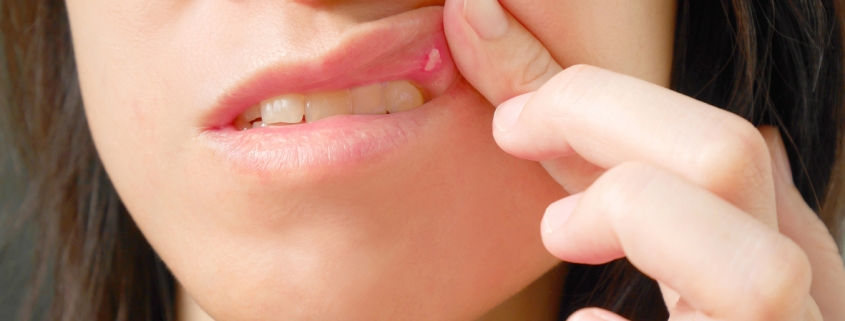Canker Sores: Causes, Symptoms, Treatment
As an overview, a canker sore is a small crater that can appear on your tongue or the inside of your lip or cheek. They are not contagious, therefore cannot be spread, but you can develop more than one canker sore at a time. Canker sores mainly appear in women and teens, but anyone is susceptible to them. You can get a canker sore in any of the following ways:
- Biting your lip or cheek
- Having braces
- Vigorous brushing
- Stress
- Lack of sleep
- Food allergies
- Acidic foods and drinks
- Vitamin B12, iron, or folic acid deficiency
Symptoms:
As mentioned above, a canker sore will appear on the soft tissue areas of your mouth. A canker sore is small and crater-shaped, typically with a red border and a white or yellow center.
Canker sores can be swollen and painful, sometimes making it hard to do things such as eating, talking, and teeth brushing, depending on where they appear in your mouth.
Although severe in the beginning, canker sores heal on their own over time with minor ones only needing a week or two to heal, and major ones up to 6 weeks.
Treatment:
Canker sores go away on their own so no intervention is required. However, you can lessen the pain and avoid getting any new ones by taking the following steps:
- Eat soft foods that are easy to chew or don’t require chewing at all. If the latter is the case, try nutritious smoothies to get your nutrients or puree your meals
- Avoid citrusy, spicy, and salty foods and drinks
- Rinse your mouth with salt water
- If painful, take a painkiller or numb the area with topical medicine or an ice cube
Prevention:
Most of the time, you may not know what caused your canker sore. If you got one because of vigorous brushing, take it easy and have your dentist show you the proper way to brush your teeth. They may also recommend a soft-bristled toothbrush instead.
If you developed a canker sore because of biting your cheek or tongue, slow down when eating and be sure not to talk at the same time.
If you frequently get canker sores and they are not because of the previous reasons, make a food diary and try to spot some patterns in your diet. Perhaps you’re eating too many acidic foods and those are causing the flare-ups, or maybe you have an allergy you don’t know about.

